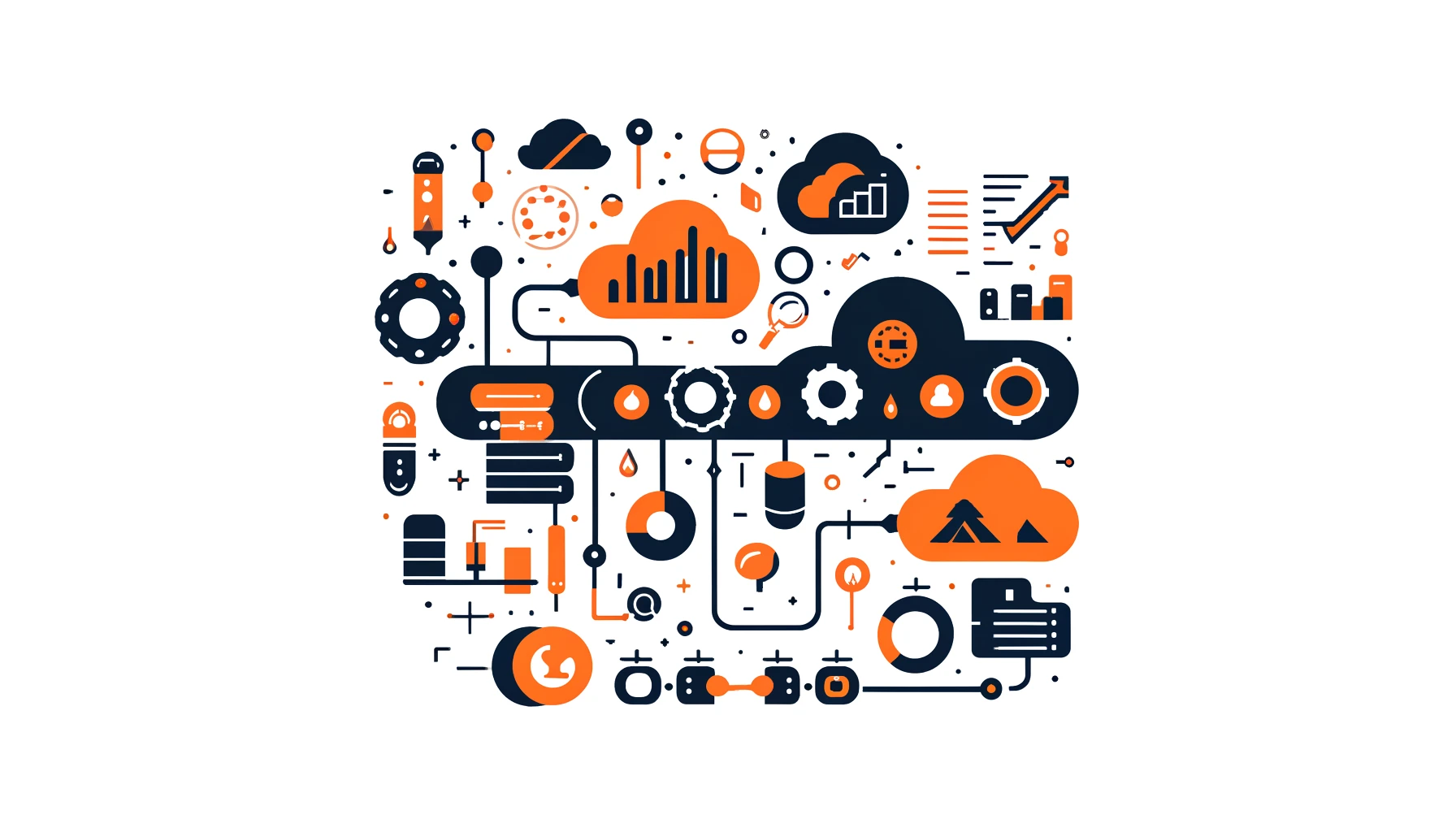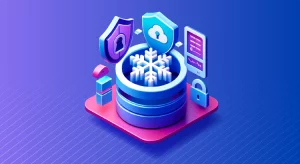
DataOps Tools: Data Governance & Security

In today’s data-driven world, organizations are collecting and processing more data than ever before. Managing this data effectively is crucial for deriving valuable insights and making informed business decisions. This is where DataOps comes in – a collaborative data management practice that aims to improve the quality and reduce the cycle time of data analytics. DataOps tools are important for automating and coordinating different parts of the data pipeline to support DataOps practices.
In this article, we’ll dive into the basics of DataOps tools, explore some popular open-source and commercial options, and discuss their key capabilities. If you work with data, it’s important to know about DataOps tools.
If you work with data, it’s important to know about DataOps tools. These tools can help you improve your data processes and achieve better outcomes. This applies to data engineers, data scientists, and business analysts alike.
What are DataOps Tools?
DataOps tools are software solutions that facilitate the implementation of DataOps practices. They help automate and streamline the data lifecycle, from ingestion and transformation to analysis and reporting. By using DataOps tools, organizations can improve data quality, increase efficiency, and foster collaboration between data teams and stakeholders.
DataOps tools encompass a wide range of functionalities, including:
- Data ingestion and integration
- Data transformation and preparation
- Data quality management
- Data security and governance
- Workflow orchestration
- Monitoring and alerting
By leveraging these capabilities, DataOps tools enable organizations to build robust and reliable data pipelines that deliver trusted data for analysis and decision-making.
Open-Source DataOps Tools
Open-source DataOps tools have gained significant popularity due to their flexibility, cost-effectiveness, and community-driven development. Here are some notable open-source DataOps tools:
Apache Airflow
Apache Airflow is a powerful orchestration tool that allows you to define, schedule, and monitor complex data pipelines. Airflow allows you to make dynamic workflows across different systems and technologies using its many operators and flexible design.
You can use Airflow to create a data pipeline. Airflow can be used to create a data pipeline. This pipeline can collect data from various sources such as databases and APIs.
You can transform the data using SQL or Python. Finally, you can store the processed data in a data warehouse. Airflow’s online interface shows a picture of the pipeline, making it simple to watch and fix problems.
Apache NiFi
Apache NiFi is a robust data integration and processing platform that enables real-time data ingestion, transformation, and distribution. NiFi makes it easy to create data flows with its drag-and-drop interface and wide range of processors. It also helps track data origin.
NiFi can assist in collecting real-time data from IoT devices. It can also clean and improve the data. Additionally, it can send the data to various destinations such as databases or message queues. NiFi’s flow-based programming and data provenance features make it perfect for managing complex data integration tasks.
Great Expectations
Great Expectations is a data quality management framework that helps you define, validate, and document data quality expectations. It provides a declarative way to specify data quality rules and generates comprehensive data quality reports. With Great Expectations, you can define expectations such as data type checks, value ranges, and uniqueness constraints.
For example, you can assert that a column in a database table should only contain positive integer values. Great Expectations can check the data against expectations and give reports on any issues, helping you find data quality problems early.
Commercial DataOps Tools
While open-source tools offer great flexibility, commercial DataOps tools provide enterprise-grade features, support, and integration capabilities. Here are a few notable commercial DataOps tools:
Talend Data Fabric
Talend Data Fabric is a comprehensive data integration and governance platform that enables end-to-end DataOps. It has many connectors for importing data. It also has strong tools for transforming data. Additionally, it includes built-in features for ensuring data quality and governance.
You can use Talend Data Fabric to create a data pipeline. This pipeline can extract data from various cloud apps. You can then make changes to the data using visual tools or code.
Additionally, you can check the quality of the data using built-in profiling and cleansing features. Talend’s collaborative environment and version control features facilitate teamwork and agile development practices.
Informatica Intelligent Data Platform
Informatica Intelligent Data Platform is a unified DataOps platform that combines data integration, quality, governance, and security capabilities. It leverages AI and machine learning to automate data management tasks and provide intelligent recommendations. With Informatica, you can build end-to-end data pipelines that handle both batch and real-time data processing.
You can use Informatica to merge data from various databases. You can also use it to verify data quality. After that, you can send the clean data to a cloud data warehouse for analysis. Informatica’s AI-powered features, such as automatic schema drift handling and data lineage, enhance productivity and ensure data trust.
DataKitchen
DataKitchen is a DataOps platform that focuses on enabling end-to-end DataOps processes. It provides a suite of tools for data pipeline orchestration, testing, and deployment, along with collaboration and governance features. With DataKitchen, you can define reusable “recipes” that encapsulate data processing steps and dependencies.
These recipes can be version-controlled, tested, and deployed across different environments. DataKitchen’s testing framework allows you to validate data quality and ensure the reliability of your data pipelines.
Key Capabilities of DataOps Tools
While DataOps tools vary in their specific features and target use cases, they generally offer the following key capabilities:
- Data Integration: DataOps tools enable seamless integration of data from diverse sources, such as databases, files, APIs, and streaming platforms. They provide connectors and adapters to gather data from various sources and convert it into a consistent format for further processing.
- Data Transformation: DataOps tools offer powerful data transformation capabilities to cleanse, enrich, and shape data. They support various transformation techniques, including data mapping, filtering, aggregation, and joins. These transformations can be defined using graphical interfaces, SQL, or programming languages like Python or Scala.
- Data Quality Management: Ensuring data quality is a critical aspect of DataOps. DataOps tools provide data quality management features to validate data against predefined rules, detect anomalies, and handle data inconsistencies. They offer data profiling capabilities to understand data characteristics and identify quality issues upfront.
- Workflow Orchestration: DataOps tools enable the orchestration of complex data workflows, allowing you to define dependencies, schedule tasks, and handle failures gracefully. They provide visual interfaces to design and monitor workflows, making it easier to manage end-to-end data pipelines.
- Collaboration and Version Control: DataOps tools foster collaboration among data teams by providing version control capabilities for data pipelines, models, and artifacts. They allow multiple users to work on the same project simultaneously, track changes, and manage different versions of the pipeline code.
- Monitoring and Alerting: DataOps tools offer monitoring and alerting features to track the health and performance of data pipelines. They provide dashboards and metrics to visualize pipeline progress, detect bottlenecks, and receive alerts on failures or anomalies. This enables proactive issue resolution and ensures the reliability of data workflows.
Conclusion
DataOps tools are essential for implementing DataOps practices and driving data-driven success. You can choose between open-source or commercial tools. These tools have the necessary features to automate and coordinate data pipelines. They also help maintain data quality and promote teamwork among data teams.
By leveraging DataOps tools, organizations can streamline their data workflows, reduce manual efforts, and deliver trusted data faster. As data becomes increasingly critical for business success, adopting DataOps tools is no longer a choice but a necessity.
When selecting DataOps tools, consider your organization’s specific requirements, existing technology stack, and budget. Evaluate the tool’s ease of use, scalability, integration capabilities, and community support. It’s also essential to ensure that the tool aligns with your DataOps goals and can adapt to your evolving data landscape.
In addition to the DataOps tools mentioned in this article, it’s worth exploring DataSunrise, a user-friendly and flexible solution for database security, audit, and compliance. DataSunrise offers a range of tools to protect sensitive data, monitor database activities, and ensure regulatory compliance. To learn more about DataSunrise and how it can complement your DataOps strategy, visit our team for an online demo.
Embracing DataOps tools is a significant step towards optimizing your data workflows and driving data-driven success. By automating and orchestrating data pipelines, ensuring data quality, and fostering collaboration, DataOps tools empower organizations to harness the full potential of their data assets and make informed decisions with confidence.
To learn more about DataSunrise and how it can complement your DataOps strategy, visit our team for an online demo.
